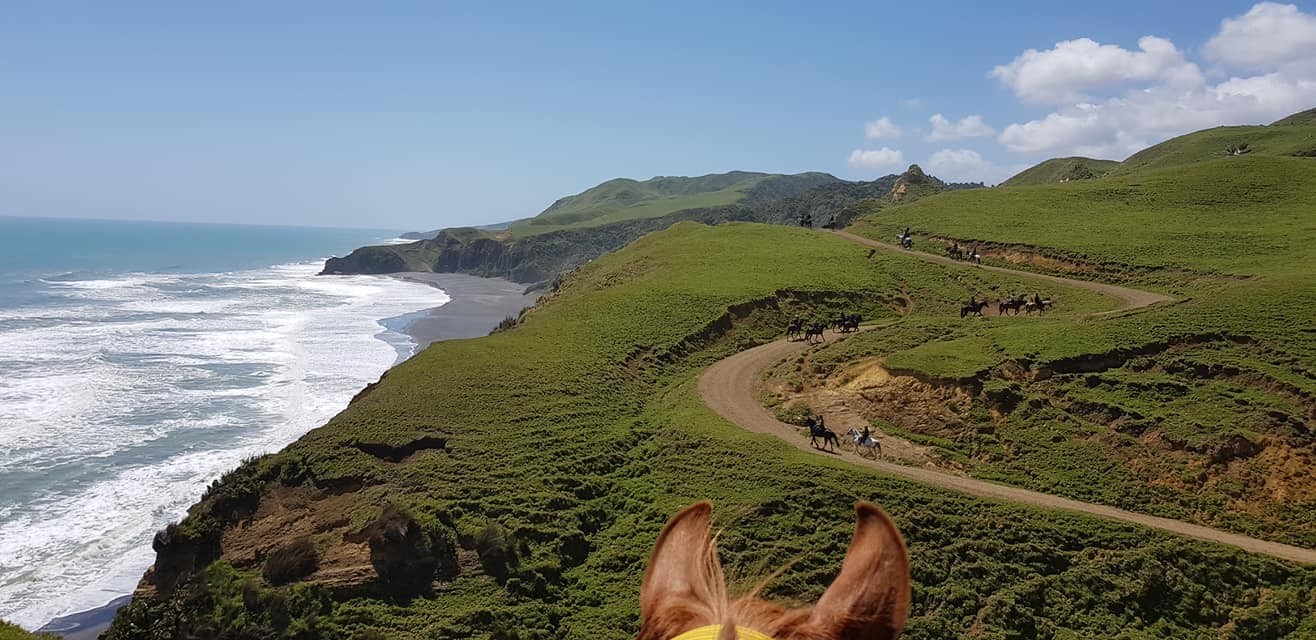To Aria and back, on a horse
Kaye Nelson and her husband Jon have been horse trekking for three decades.
“I don’t know whether any person who is attached to horses would really be able to say exactly why, says Kaye. “It’s something that just here and you enjoy them. We started off because we used them on the farm in those days, early on.”
The Nelson’s live near Aria in the King Country. “Just a little place these days,” says Kaye.
Kaye says the big change in horse trekking since she and Jon started is, the treks no longer shift from site to site each night.
“If you did a five-day trek you stayed in a truck with your gear that shifted around. It was a huge logistical nightmare to shift all the gear that you needed every night. You had to have trucks, you had to take showers, toilets, and everything. You had to have a lot more people to run the trek. We managed it because we didn’t know anything else.”
Now, most treks base themselves in one place and you sleep in your truck. There are private treks that shift from site to site each day, but they are smaller in size. The private treks may have up to 20 horses whereas the big public treks can have between 80 and 120 horses.
Kaye says more people are trekking these days.
“It’s a fundraiser. A huge number of different committees, schools and sports clubs put them on to raise money.”
“From about Labour Weekend, you’d find you could go for a trek every weekend if you wanted to. A huge number of people are involved in each area and a lot of people are also travelling.”
Organising a trek with over 100 horses and their riders is a big task. Kaye notes the starting point is finding very obliging landowners who give permission to trek on their land.
“The people that you are organising in your own district, for your fundraiser – you know them all. You have to go to see them, you have to talk to them. You have to decide on a place where you are going to stay. It’s a huge ask because 100 horses can’t all go in one paddock.”
Originally, says Kaye, most people stayed in tents or in the woolshed on the floor – with pump-up or roll-up beds. Now, most people have a truck or a float.
It is not just one landowner who the horse trekkers need to talk to. 5 or 6 hours of riding will traverse about 35 kilometres. Horses can pass through a lot of farms over that distance.
Kaye says the key to a good trek is to provide variety. Old timber trails through the bush are ideal, so riders and their horses are not clambering through bush. Beach rides are also great.
A big advantage of trekking, says Jon, is you ride the ridges of the country so you get wider views, different from roads which follow valley floors.
The next big task for a large trek is keeping the group together. The person who is in front needs to keep the group together so that they do not leave gates open. And so that the people at the back do not feel like they are being pushed all day to go faster than what they want to. If the trek has over 100 riders, it will have people in the middle as well keeping an eye to make sure things are going all right. Problems can occur with horses – injuries or lack of fitness for the terrain.
“It’s hard to say your favourite trek because every time you come away and say, ‘that was fantastic,’ and then you start to think,” muses Kaye. “With my husband and I, and most people these days, we’re trekking all over New Zealand. We’ve been down to the cavalcade from Fairlie to Oamaru, to the Awatere valley near Molesworth, and my husband has trekked Lake Tekapo back to Hawea, which was 450km.”
Jon has done two private treks – first, he rode from 90 Mile Beach back down to Aria. And then the following year he rode from Aria to Cape Palliser.
“We’ve ridden across the island from Awakino to north of Napier,” says Kaye. “That was 14 days. People say where do you trek. These treks are all over the place and you just decide where you’d like to go. I don’t know whether there is an area that we have not trekked in yet – the west coast of the South Island perhaps?”
“Why do I like horses? They are expensive, time-consuming, dirty, dangerous as in falling off them and they can bite and kick, but they are a noble animal. And for some reason, you become passionate about them.”

